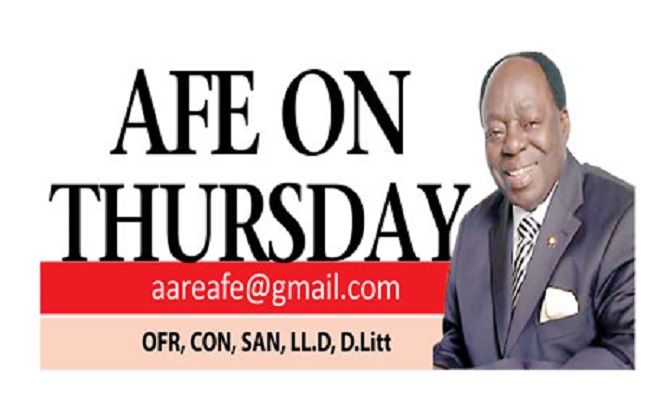Principle 7: Educational Reform: State of Emergency on Education
ANY self-respecting Nigerian ought to be thoroughly ashamed of the current state of our educational system. A transformational leader will commit to declaring a state of emergency on education systems in Nigeria from primary, secondary to tertiary within the first 100 days of office. I have addressed the issue of poor funding in education over the years. I will recommend once more that this country must comply and implement UNESCO recommendation and budget 26 percent for the maintenance of education annually. The fact must be told that our universities simply do not have the financial wherewithal to compete with other universities around the world. Most advanced countries appreciate that government alone having regard to its responsibilities on infrastructure cannot provide quality education that will accommodate all applicants seeking admission to university. That is why in addition to providing robust financial support for public universities, special financing is set aside to support the establishment of private universities that can bridge the gap of insufficient space for interested and qualified university candidates. Government must encourage and appreciate individuals who have the means and interest in education.
To rapidly catch up with the rest of the world in terms of quality education, there is a need to establish National Emergency Funds for the education sector and designate a significant portion of annual budgets to education across Africa. For example, committing a minimum 25 percent of national budget or 4 percent of GDP each year to education would ensure that our education infrastructure deficit is slowly reduced, while demands for new infrastructure are met. Unfortunately, the Nigerian government is yet to embrace the need for priority funding for higher education, same as several other African countries. As a matter of fact UNESCO recommends that government all over the world should allocate 26 percent of the annual budget to Education.
This regrettable lack of political will is also noticeable in the fact that Nigeria has a Sovereign Wealth Fund currently worth about $1.5 billion, being savings from excess crude oil sales. The Nigerian Sovereign Investment Authority has identified four key priority sectors that will benefit from the 5-year priority Infrastructure Investment program of the fund and they are: Agriculture, Healthcare, Real Estate, Power and Motor Ways. Despite the huge infrastructure deficit in our education sector, it beats my imagination that education is not recognized as a priority sector that deserves strategic and focused high priority investment. This is a situation that we must all address. Investment in education must be a priority of any responsible nation.
Again, government should set up more scholarships and avenues for students to obtain loans to finance their education. Furthermore, a transformational leader will advocate bringing back the Education Bank established by virtue of the Nigerian Education Bank Act. Cap N104, Laws of the Federation of Nigeria 2010. This bank was empowered by Law to approve and disburse loans to students to finance their education in institution of higher learning. Regrettably that bank has folded up. Similarly, our Universities must engage with International Development Partners to explore international funding opportunities. Several organizations such as the UK’s Department for International Development (DFID), World Bank, USAID, African Development Bank, Qatar Foundation, Bill and Melinda Gates Foundation amongst others are actively seeking to partner with our Universities in areas of financing projects and research efforts.
For example, ABUAD received a $20 Million expansion loan from the African Development Bank. This path-breaking funding is designed to fast-track ABUAD’s world class infrastructural development strategy. It was specifically provided to make ABUAD a Centre of Excellence for Tertiary education in Africa by expanding access to high-quality education to over 10,000 students per year. The expansion plan consists of construction of new facilities – including a 400-bed Teaching Hospital, an Industrial Research Park, and an Independent Power Plant (IPP). Consequently, ABUAD has a 24 hour supply of electricity which has enabled the University to establish well-equipped research centre and protect its modern laboratory equipment.
Similarly, another key reason why successive Nigerian governments have been able to get away with an uncommitted approach to university funding is the fact that the 1999 Constitution fails to provide a robust and enforceable recognition for the rights of every Nigerian to receive quality education. This has to be the starting point of our enquiry. The supreme law must recognize the basic right to education as a justiciable and enforceable right. The current constitution, fostered on Nigerians by the military in 1999, unscrupulously placed education under Chapter II called: the Fundamental Objectives and Directive Principles of State Policy. This portion of the Constitution indeed graciously and rightly provides that:
The Government shall strive to eradicate illiteracy; and to this end Government shall, as and when practicable, provide (a) free, compulsory and universal primary education; (b) free secondary education; (c) free university education; and (d) free adult literacy programme.
While these are all very good and robust provisions, section 6, sub-section (6), paragraph (c) of the same Constitution however provides that the Judiciary shall have no powers to decide on any issue or question as to whether any act of omission by any authority or person is in conformity with the Fundamental Objectives and Directive Principles of State Policy. This provision makes it difficult, if not impossible, for citizens to sue the government for failing to provide affordable or quality education. In essence, like a Greek gift, the constitution in one breadth contains wishful aspirations or dreams about education, and in another breath takes it away from the citizens. There is an urgent need to modify these archaic provisions and recognize education as an important and enforceable Fundamental Human Right. By so doing, students will have robust legal basis to demand for an enforcement of their rights to education in courts, rather than resorting to strike actions and protests. Without placing strong constitutional obligation on the Nigerian government to finance education at all levels, the current situation whereby the Nigerian government has failed to achieve the minimum 26 percent of national budget or 4% of GDP funding threshold specified by UNESCO, may continue.
(To be continued…)
Please send your comments and suggestions to my email: president@abuad.edu.ng
AARE AFE BABALOLA, OFR, CON, SAN, LL.D (Lond.)






